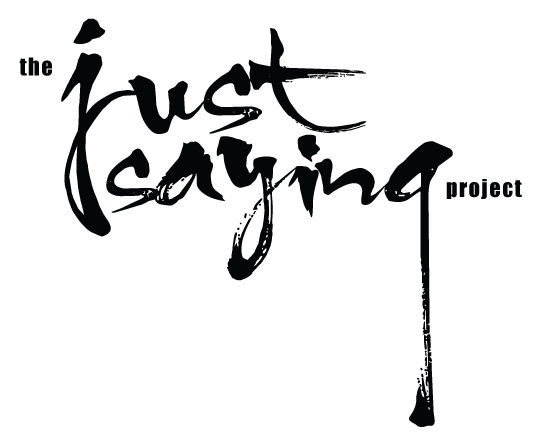The Story Beneath the Sigh: Reclaiming Eeyore
I look nothing like Eeyore, if anything I probably vibe more with Winnie the Pooh, but with pants on.
There have been a few moments in my life where I have been told I was Eeyore, or I was acting like Eeyore. Now the nickname has been spoken half in jest, maybe in concern and sometimes in annoyance.
But it always lands the same way: as if my heaviness makes me the gloomy donkey of the story.
At first, I got really bothered. Eeyore? Really? After all, one of my top Clifton Strengths is Positivity. I have built my work, life, and presence on finding the light in the cracks and reaching for joy even in hard places. And yet, the name lingered.
The past two years have been heavy ones. When you are carrying emotional bricks navigating life can be all consuming and some days and weeks, I have felt a bit like Eeyore, wishing I was Tigger (because Tiggers are wonderful things).
But what if Eeyore isn’t just sadness? What if being Eeyore is something more?
In the world of Winnie-the-Pooh, Eeyore has long been an allegory for pessimism. He’s the one we picture when we talk about a “downer” in the room. His catchphrase, “Thanks for noticing me,” has been flattened into a punchline about self-pity.
But if you really look at him, Eeyore is far more layered than that. Yes, he’s gloomy. Yes, he mutters. But he also shows up — for birthdays, for adventures, for the group. His tail falls off, again, and he keeps walking. Eeyore doesn’t quit. He doesn’t fake cheer. He is the embodiment of resilience in quiet form.
And every now and then, he surprises us. “It never hurts to keep looking for sunshine,” he once said — proof that underneath the sigh is a flicker of hope, small but steady.
Eeyore never pretends. He doesn’t slap on a smile to make others comfortable. He tells the truth about how he feels — tired, overlooked, left behind — and yet, he still comes along.
There’s something profoundly positive about that. It says: you don’t have to be shiny to belong. You just must be yourself. And Eeyore belongs. The Hundred Acre Wood wouldn’t be the same without him.
Women, too, are often given labels that shrink them down to one note. Too negative. Too emotional. Too heavy. Too much. Like Eeyore, they are judged on the surface sigh without anyone pausing to ask: what’s the story underneath?
That’s where storytelling becomes powerful. When women speak their truths — the sleepless nights, the invisible labour, the resilience no one claps for — those “too much” labels transform into testimonies of strength. What looks like gloom is often grit. What sounds like heaviness is often holding — holding family, holding community, holding it together when no one else will.
If Eeyore had a back story, it might sound familiar. Perhaps he once had a herd of his own but lost it. Perhaps his drooping tail, always falling off, is not just a running joke but a symbol of the many times life has taken pieces from him. And yet, there he is, showing up in the Hundred Acre Wood. Quiet. Honest. Present. His sighs are not laziness — they’re the sound of someone who has known loss and still chooses to keep going.
This is the thread that ties Eeyore to women’s storytelling: the quiet endurance that isn’t flashy but is essential. The presence that doesn’t always bounce with Tigger’s energy or beam with Pooh’s optimism, but still turns up, again. In that way, Eeyore is not a symbol of sadness at all. He is a mirror of resilience. And he reminds us of something women know too well: that showing up as you are — even weary, even worn — is its own kind of power.
It’s easy to call a woman a name when her presence feels too much to handle. Over the years, women have been called “bossy,” “dramatic,” “emotional,” “hysterical” — words meant to shrink them, to put them back in their place. Names like these carry an undercurrent of control, a way of saying you are too much, and we’d like you to be less.
Eeyore, too, can become one of those labels — a way to dismiss heaviness rather than understand it. But what if the power lies not in resisting the name, but in transforming it? What if every label meant to belittle could instead become an anchor, a story of empowerment? The moment we rewrite the narrative; the word loses its sting and gains new strength.
So maybe being “an Eeyore” isn’t about dragging others down. Maybe it’s about being the one who notices, who feels deeply, who reminds the group that joy and struggle live side by side. Maybe Eeyore is the quiet anchor, the one holding space so that everyone else can bounce, play, and dream.
As he once said himself, “A little consideration, a little thought for others, makes all the difference.” That is Eeyore’s secret strength: his empathy, his capacity to see the invisible threads that bind us together.
If being an Eeyore means showing up honestly, enduring the hard parts, and still being there for others — then maybe it’s not an insult at all.
Maybe it’s a compliment. Because sometimes positivity isn’t about being the loudest cheerleader in the room. Sometimes it’s about simply standing there, tail pinned back on, quietly reminding everyone: we can keep going.
